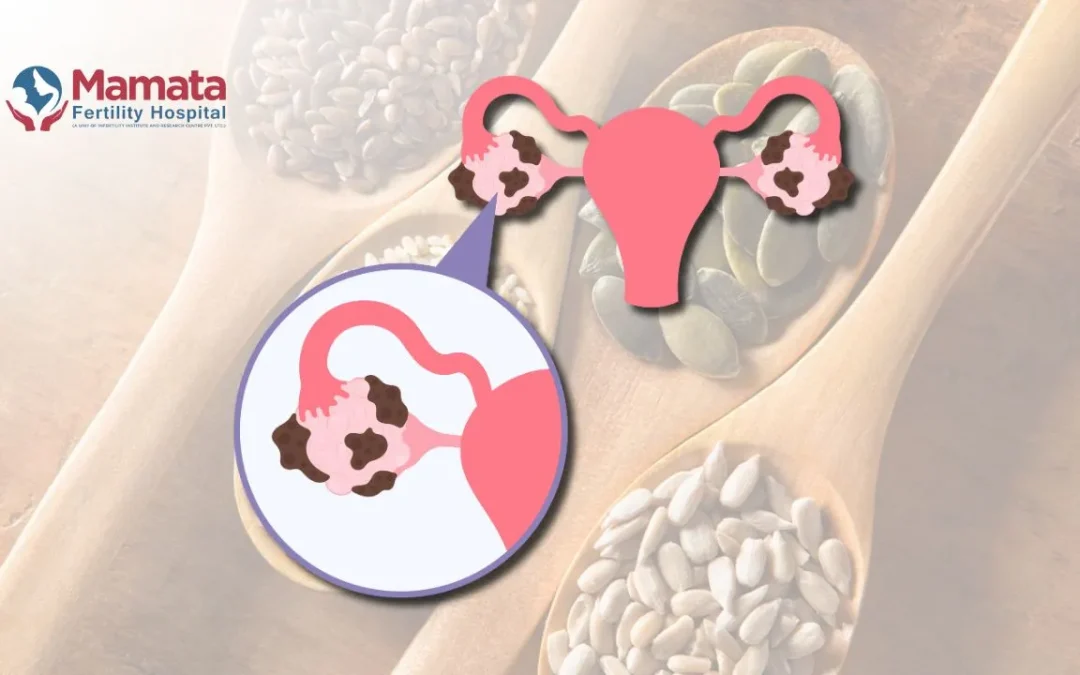Fallopian Tube Cancer
At Mamata Fertility Hospital in Secunderabad, we strive to empower patients with detailed and accurate information about rare cancer types like Fallopian Tube Cancer.
By understanding this condition, you can manage early screenings, identify warning signs, and plan effective treatments. This guide explains Fallopian Tube Cancer and highlights Indian-specific data to provide a well-rounded perspective.
For Appointments, Please Call:
More On Fallopian Tube Cancer
What is Fallopian Tube Cancer?
Fallopian Tube Cancer is a rare gynecologic cancer that originates in the fallopian tubes—two thin tubes that connect the ovaries to the uterus. This cancer accounts for only 1-2% of all gynecological cancers globally but emerging data suggest that some cases of ovarian cancers may actually begin in the fallopian tubes.
Typically, Fallopian Tube Cancer falls into three primary categories based on the cancer’s histological type:
- Serous Adenocarcinoma (most common)
- Endometrioid Carcinoma
- Sarcomas (rare)
According to evolving evidence, up to 90% of epithelial ovarian cancers may originate in the fallopian tubes. While rare, understanding this cancer is critical as it often goes undetected until it advances into later, more dangerous stages.

Causes and Risk Factors
Fallopian Tube Cancer isn’t attributed to a single cause. Instead, it develops from multiple risk factors, often interconnected. Factors that apply specifically to the Indian population include lifestyle and genetic predispositions.
Established Risk Factors
-
- Age: Median onset is typically after age 50, coinciding with menopause.
- Genetic Mutations: BRCA1/BRCA2 gene mutations increase the risk by almost 40-60% for related cancers, including those of the fallopian tubes. These gene mutations are noted during clinical counseling in Indian women with a familial history of ovarian or breast cancer.
- Personal or Family History: Women with first-degree relatives diagnosed with breast, ovarian, or peritoneal cancers are 10-15% more likely to develop Fallopian Tube Cancer. Genetic screening at hospitals like Mamata Fertility is crucial for early risk identification.
- Endometriosis and Chronic Pelvic Conditions: Women with deep pelvic inflammation have shown elevated cancer risks.
- Ethnic Susceptibilities: Studies confirm higher cancer incidences amongst families of Indian and Ashkenazi Jewish descent.
- Lifestyle Factors: A sedentary lifestyle and obesity (BMI >30) are growing concerns among Indian women, especially in urban settings, contributing 15% to reproductive cancer risks.
Symptoms and Diagnosis
Unfortunately, Fallopian Tube Cancer often presents vague, non-specific symptoms in its early stages, making early diagnosis rare. Below are common symptoms that, while subtle, should not be ignored.
Symptoms
-
- Persistent pelvic or lower abdominal pain
- Unusual vaginal bleeding, especially after menopause
- Persistent bloating or abdominal swelling
- Unexplained weight loss
- Changes in urination or bowel habits, like increased frequency or constipation
- Watery or bloody vaginal discharge
How is it Diagnosed?
Timely screening and testing are essential for detection. At Mamata Fertility Hospital, we use advanced diagnostic tools such as:
-
- Ultrasound (Pelvic/Transvaginal): Safe and effective imaging to identify abnormal masses.
- CA-125 Blood Test: Measures protein levels often elevated in women with cancer. However, CA-125 can also rise due to benign conditions, so further tests like MRI or CT scans may be required.
- Surgical Exploration (Biopsy): A definitive diagnostic approach where fallopian tubes and nearby tissues are assessed.
Impact on Health and Daily Life
Like other gynecological cancers, Fallopian Tube Cancer impacts physical health, mental well-being, and daily routines.
Physical Effects
Advanced cancer stages may lead to severe fatigue, continuous pain, and an accumulation of abdominal fluid known as ascites, which can limit mobility. Furthermore, treatments like chemotherapy come with side effects like nausea, immune suppression, and hair loss.
Emotional and Psychological Effects
Receiving a cancer diagnosis can be emotionally taxing. Indian women often grapple with societal pressures around family responsibilities, fertility-related challenges, and limited resources for emotional support.
Counseling at specialized centers such as Mamata Fertility can offer relief by connecting patients with peer and therapeutic networks.
Treatment and Management Options
The treatment for Fallopian Tube Cancer depends on the specific cancer stage. Standard options include the following strategies.
1. Surgery
Surgical removal of the tumor is the first line of treatment. Surgery may involve salpingo-oophorectomy (removal of fallopian tubes and ovaries), hysterectomy, or removal of nearby lymph nodes affected by the tumor. For Indian women prioritizing fertility, advanced oncologic centers explore conservative surgeries when diagnosed in early stages.
2. Chemotherapy
Post-surgery chemotherapy is recommended to target cancerous cells that could not be surgically removed. The most commonly administered drugs in India include Carboplatin and Paclitaxel, which are widely available and cost-effective under national cancer programs.
3. Targeted Therapy
For patients with BRCA mutations, PARP inhibitors like Olaparib are also introduced to block the replication of cancer cells.
4. Palliative Care
For advanced cases, palliative care methods like pain management and nutritional therapy are critical to improving quality of life.
Indian Scenario and Statistics
Although global statistics focus heavily on ovarian cancer, there is increasing recognition of Fallopian Tube Cancer as an independent yet under-researched condition in India.
-
- According to cancer registries, uterine-related cancers contribute 25% of all gynecological cases annually in India, with awareness programs in rural states being key to diagnosis.
- Studies conducted in AIIMS (New Delhi) suggest that urban Indian women with BRCA1 mutations have a 1 in 50 likelihood of developing Fallopian Tube Cancer versus rural counterparts with protective lifestyle habits.
Lifestyle and Dietary Recommendations
Managing Fallopian Tube Cancer doesn’t just involve medical treatments—it requires lifestyle modifications and proactive measures.
Lifestyle Tips
-
- Balanced Diet: Include antioxidant-rich Indian staples like turmeric, seasonal vegetables, and whole grains to strengthen immunity during treatment.
- Regular Activity: Post-treatment exercises such as yoga can restore strength and minimize fatigue.
- Quit Smoking and Alcohol: Both are linked to heightened cancer risks.
Emotional Support
-
- Seek counseling regularly or join a cancer support group near you.
- Use intermittent breaks for family time or mindfulness practices.
BRCA Screening
Indian oncologists recommend genetic testing for high-risk women, especially in BRCA-positive families. Subsidized screening campaigns under initiatives like Ayushman Bharat offer early-stage detection solutions.
Frequently Asked Questions (FAQs)
1. Can Fallopian Tube Cancer be detected early?
Unfortunately, this cancer often develops silently. However, regular gynecological evaluations and CA-125 screening in high-risk women can improve the chances of early detection.
2. Is surgery necessary for all cases?
Surgery is the most effective treatment for localized cancers. However, the extent of surgery depends on staging, with conservative methods explored where possible.
3. Are genetic tests for BRCA mutations expensive in India?
Genetic testing costs and resources for BRCA are now more accessible due to subsidies and healthcare partnerships in India. Rural health campaigns are also improving reach.
4. What is survival like for women with early-stage diagnoses?
When diagnosed early, the 5-year survival rate is nearly 90%, but this dips with late-stage predictions.
At Mamata Fertility Hospital, we aim to provide not only advanced treatments but also compassionate pre-and-post-diagnosis care for rare cancers like Fallopian Tube Cancer.
Whether you seek screening, counseling, or expert oncological advice, reach out to us for comprehensive solutions aligned with the best medical practices across India.
Reviewd By

Dr Aarti Deenadayal Tolani
Clinical Director, Scientific In-Charge & Fertility Consultant
MBBS, MS ( OBGYN), FICOG
Expert in Reproductive Endocrinology, Infertility, Advanced Gynaec Ultrasound, and Faculty at Mamata Fertility Hospital.
Blogs and Articles

How to Cure Irregular Periods in Teenage Girls? Causes & Treatments
Irregular periods in teenage girls are common due to hormonal changes, stress, and lifestyle factors. Learn about the causes, natural remedies, and when to seek medical advice.

Seed Cycling for PCOS: Is It Worth It?
Seed cycling may support PCOS naturally, but lacks strong evidence. Use it as a complement to medical care for best results.

Foods to Regulate Periods Naturally
Learn how natural foods like leafy greens, seeds, and spices can help balance hormones, regulate periods, and support better menstrual health.
RELATED CONDITIONS
- Uterine Cancer
- Cervical Cancer
- Ovarian Cancer
- Endometrial Cancers
- Breast Cancer
- When to Consult Infertility Specialist?

